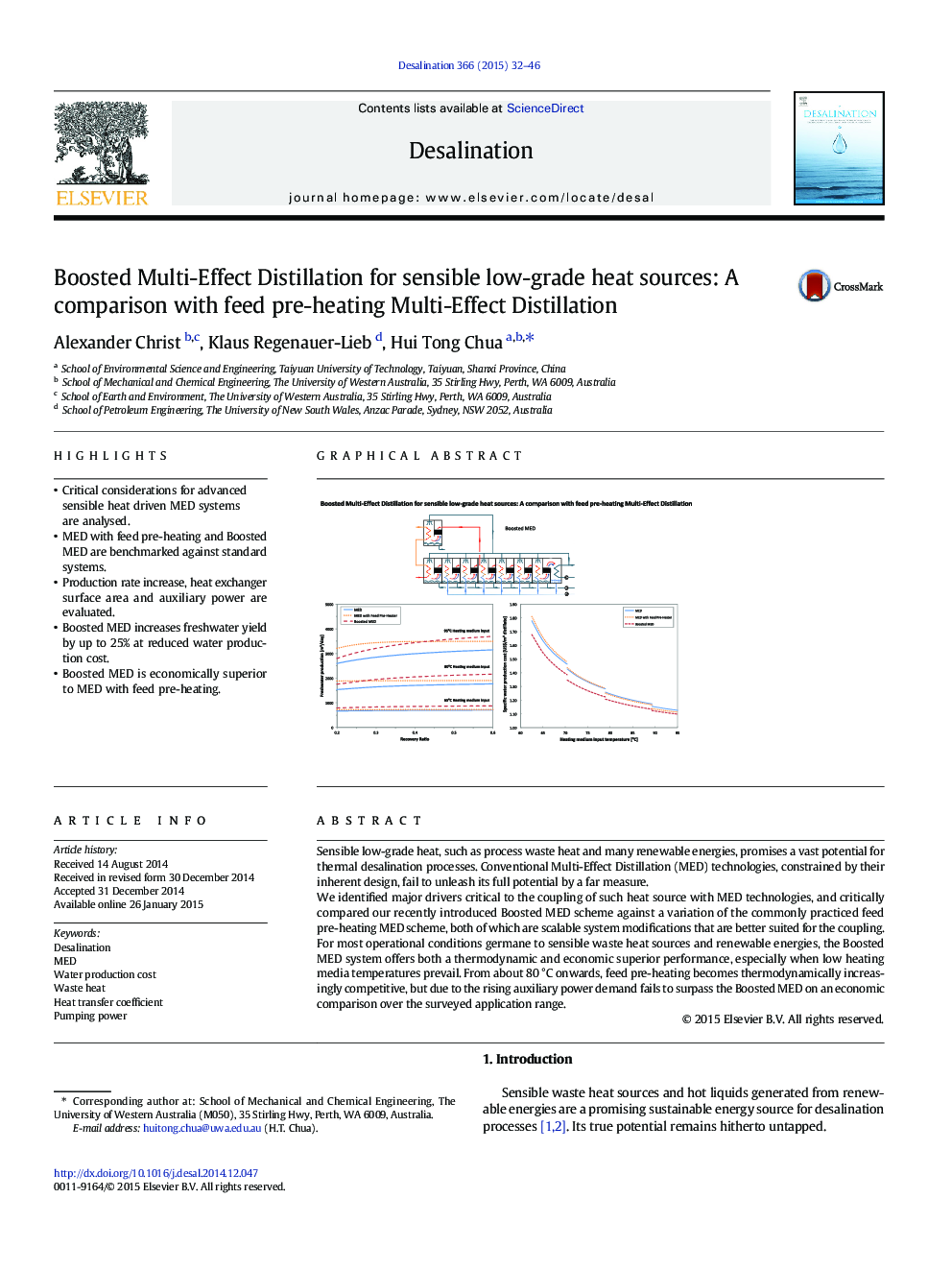| Article ID | Journal | Published Year | Pages | File Type |
|---|---|---|---|---|
| 623098 | Desalination | 2015 | 15 Pages |
•Critical considerations for advanced sensible heat driven MED systems are analysed.•MED with feed pre-heating and Boosted MED are benchmarked against standard systems.•Production rate increase, heat exchanger surface area and auxiliary power are evaluated.•Boosted MED increases freshwater yield by up to 25% at reduced water production cost.•Boosted MED is economically superior to MED with feed pre-heating.
Sensible low-grade heat, such as process waste heat and many renewable energies, promises a vast potential for thermal desalination processes. Conventional Multi-Effect Distillation (MED) technologies, constrained by their inherent design, fail to unleash its full potential by a far measure.We identified major drivers critical to the coupling of such heat source with MED technologies, and critically compared our recently introduced Boosted MED scheme against a variation of the commonly practiced feed pre-heating MED scheme, both of which are scalable system modifications that are better suited for the coupling.For most operational conditions germane to sensible waste heat sources and renewable energies, the Boosted MED system offers both a thermodynamic and economic superior performance, especially when low heating media temperatures prevail. From about 80 °C onwards, feed pre-heating becomes thermodynamically increasingly competitive, but due to the rising auxiliary power demand fails to surpass the Boosted MED on an economic comparison over the surveyed application range.
Graphical abstractFigure optionsDownload full-size imageDownload as PowerPoint slide
